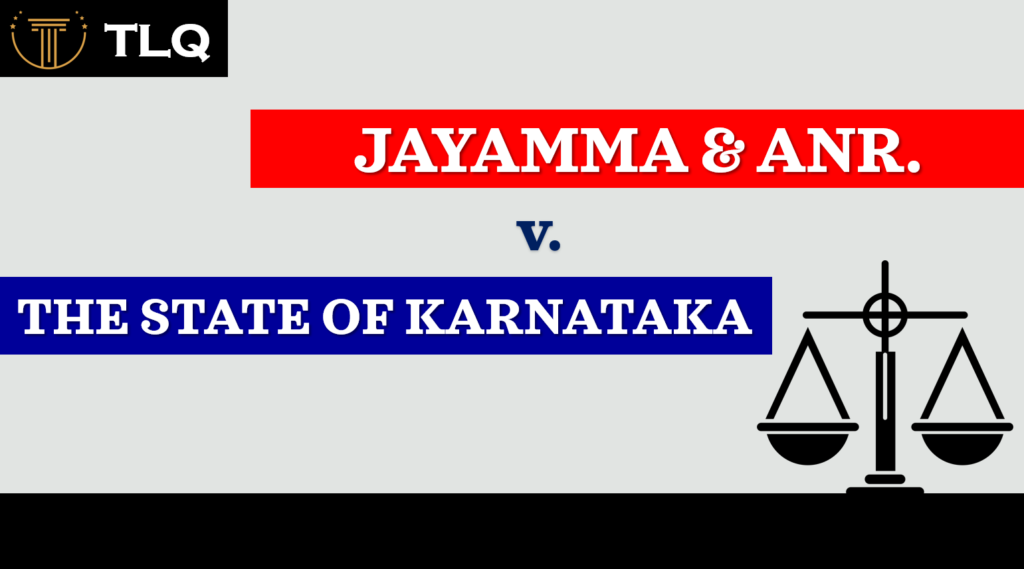Published On: 21st March, 2024
Authored By: Somya Gupta
Bennett University
Marital rape, or the violation of an individual’s autonomy inside a marriage, is a controversial and often ignored subject in the social, legal, and cultural spheres. Marital rape, in contrast to other forms of sexual assault, is an extremely sensitive topic that defies conventional notions of consent and privacy. A survey has unveiled that nearly 30% of married women are victims of marital rape. The question of whether it should be criminalized or not is up for dispute because many individuals consider having a sexual relationship with their husband to be natural and do not value “consent” highly. In relationships, consent is just as important as trust.
Indian Coalition Against Sexual Assault defined Marital Rape as “It is the term used to describe sexual acts committed without a wife’s consent and/or against her will by the woman’s husband. He may use physical force, threats of force to her or another person, or implied harm based on prior assaults, causing the woman to fear that physical force will be used if she resists.” (Rape n.d.)
Legal Status Worldwide
Countries’ laws regarding marital rape differ greatly from one another, reflecting differences in social, legal, and cultural viewpoints. While some countries have laws that specifically make marital rape illegal, others might not have such laws, leaving survivors with inadequate protection. The legal system is changing in a number of places to better handle the intricacies of consent and marriage. In many Western nations, including the US, Canada, UK, and some European countries, marital rape is treated in the same manner as non-marital sexual assault. Some nations, like Sweden, Canada, and the UK, have made strides toward making marital rape a crime because they view it as a grave offence. These nations recognize that consent ought to be an essential component of all sexual relationships, even those that take place inside marriage. Some countries, such as Australia and India, have made marital rape a crime in part. They acknowledge that there are specific situations or conditions—like a judicial separation or when one of the spouses is under a certain age—where marital rape is regarded as a criminal offence. While some nations, such as Singapore and India, have acknowledged the significance of making marital rape a crime, other nations, such as Afghanistan and Iran, may not have done so or may have legal systems that are insufficiently responsive to the problem. Asia’s legal discourse on marital rape is a reflection of the intricate interactions between changing societal attitudes, religious convictions, and cultural traditions. There are around 36 countries including India that have still not decriminalized this form of violence within marriage. (Anderson 2016)
Legal Status in India
Section 375 of the IPC defines marital rape, commonly referred to as spousal rape, as forcing a connection or having sex without the spouse’s prior consent. As to the provisions of Section 2 of the 375 IPC, a man’s sexual contact with his spouse, who is of legal age, “shall not be considered as rape.” On the grounds that a woman consents to an ongoing sexual connection that she cannot back out of by becoming married, it also decriminalizes a husband raping his wife.
The consequences of rape are outlined in Section 376 of the Indian Penal Code. These include a fine and a minimum sentence of seven years in prison, extendable to life, or a maximum term of ten years in prison. However, if the victim is the husband’s own wife and is not under the age of twelve, the term is reduced to a maximum of two years in prison, a fine, or both.
With the passage of the Protection of Women from Domestic Abuse Act in 2005, marital rape was recognized as a form of domestic abuse. Women can now pursue legal remedies for marital rape and petition for a formal divorce from an abusive spouse according to this Act. (Sabhapandit 2023)
History of Marital Rape in India
In January 2022, the Delhi High Court started to consider pleas from individuals and civil society organizations challenging the exemption. By May 2022, they had rendered a divided and controversial verdict. A court disagreed, saying that marriage “necessarily” signified permission, while another backed making married rape a criminal because it violated a woman’s right to consent. In September 2022, the Supreme Court ruled that women should have access to safe abortions regardless of their marital status. As a result, marital rape should be included in the Medical Termination of Pregnancy Act’s definition of rape.
The Law Commission of India denied the necessity to repeal the marital rape exemption in 2000 while taking into consideration a number of reform recommendations aimed at updating the country’s laws against sexual violence. The Justice JS Verma Committee was assigned the duty of recommending changes to India’s rape legislation in 2012. Some of its proposals, such as the one on marital rape, were not implemented, even though they contributed to the Criminal Law (Amendment) Act of 2013, which was passed in 2013. (desk 2023)
Important cases
- Independent Thought v. Union of India (2017): The Indian Supreme Court addressed the problem of marital rape in this historic decision, overturning a legislative exemption found in the Indian Penal Code (IPC). Without consent, the exception permitted having sex with a minor wife who was between the ages of 15 and 18. The court recognized the idea of marital rape in specific situations when it decided that having sex with a minor wife would be constituted rape. (Vashist n.d.)
- State v. Raja (2011): The Delhi High Court stressed in this instance how crucial it is to classify marital rape as a crime. The court ruled that Section 375 of the IPC’s exception to rape within a marriage was unconstitutional, underscoring the necessity of legislative reform to address the problem of marital rape.
- Bhupendra Vira v. Nandkumar Prashant Mehta (2016): This Mumbai-based case brought attention to the larger problem of domestic violence, which frequently involves sexual assault within marriages, while not being a direct example of marital rape. Bhupendra Vira, an RTI activist, was killed in this case, and his wife said they were the targets of threats and harassment, including sexual abuse.
- Sakshi v. Union of India (2004): The larger topic of women’s rights and domestic violence was the subject of this case. In its ruling, the Supreme Court recognized the widespread issue of domestic violence and advocated for legislative actions to shield women from this type of abuse, which includes sexual abuse committed during marriage. (Sakshi v. Union of India n.d.)
- Rajesh Sharma & Ors v. State of A.P. & U.P. (2017): This case dealt with the abuse of Section 498A of the IPC (cruelty by spouse or relatives), even though it had nothing to do with marital rape. In its ruling, the Supreme Court established standards to stop the accuser in dowry harassment cases from being arbitrarily arrested. Women’s rights advocates expressed alarm about the ruling, claiming it would have an impact on the reporting and prosecution of cases involving domestic abuse, including spousal rape. (Goel n.d.)
Effect of Marital Rape on Women
Research shows that rape by a spouse causes particularly great damage to women. Someone they live with, share a house with, and may have children with violates them. They experience a betrayal of trust and intimacy in addition to physical violation. Victims of marital rape are more likely to have experienced many rape incidents than victims of rape by strangers or friends. Victims of marital rape sustain lifelong physical and psychological harm on par with if not more so than, those who are raped by strangers. The following are some of the effects: shame, terror, guilt, self-blame, and physical harm including shattered bones and black eyes. Victims of marital rape may decide to remain in their marriage for a variety of reasons. These include delusional belief that their partner will change, fear of additional violence, and a low feeling of self-worth. (Victorio 2023)
Need for Action
The prevalence of marital rape in India is appalling, as evidenced by statistics and first-hand testimonies. In India, it is reported that 94% of rapes occur between known individuals and the victim. According to a 2011 UN Women research, one in ten women report having experienced sexual assault at the hands of their spouse, and one in three report having been physically abused by their spouse or intimate partner. One-third of the men admitted to forcing a sexual act on their wives or partners at some point in their lives, according to a study by the International Centre for Women and the United Nations Population Fund that looked at the prevalence of marital rape and other issues in eight Indian states. Nearly two-thirds of married Indian women between the ages of 15 and 49 indicate that they have either been physically abused by their husbands or forced into having sex against their will, according to the UN Population Fund. Furthermore, statistics reveal that a woman’s husband is 40 times more likely to abuse her than an outsider. According to data from the National Health and Family Survey (NFHS-4) for 2015–16, 11.5% of women said they had experienced rape or other forms of sexual assault at the hands of their spouses. Numerous studies consistently emphasize how common and high the rate of marital rape is in India. (Ghosh 2015)
Way Ahead
In India, the issue of marital rape is made worse by centuries of social conditioning and patriarchal cultural systems. Its roots are deeply ingrained in people’s societal conditioning, the prevalent belief that a woman is her husband’s property, a lack of knowledge about consent, the dynamics of marital power, and the incapacity to view marriage as a partnership between equals rather than a male-dominated one. Future action on marital rape must consider both preventive and curative approaches in order to successfully address the problem.
To educate young people on the fundamentals of sex and related rights and issues, it is imperative that CSE be made mandatory in all Indian curricula.
Government regulations requiring education on consent and sexual encounters between married spouses must be implemented in all official employment. This can be offered as a stand-alone training module or in conjunction with the training that must be given in accordance with the Sexual Harassment of Women at Workplace (Prevention, Prohibition and Redressal) Act. The first step in giving affected parties a remedy is to criminalize and remove the legal justification for marital rape. “A woman’s autonomy and bodily integrity are concepts that have developed over the years, thus making rape an offense unless there is true consent — not merely consent by legal fiction,” writes Justice Leila Seth in her book Talking of Justice, People’s Rights in Modern India.
Additionally, relevant substantive and procedural legislation will need to be changed. In addition, marital laws apply, particularly those pertaining to guardianship and support rights for any children. The person who is the victim of the crime should have the first claim to custody if the marriage has any children over whom the parents are granted joint custody under the law. In addition, the offender must pay the child’s support in accordance with the applicable laws.
In most of India, rape crisis centers are still non-existent. Initially, these kinds of clinics must exist in every area in order to give survivors the financial and legal assistance they need both during and after the legal procedure. These facilities will offer survivors a real place to go for support. They can also be a helpful place to spread knowledge and encourage neighborhood initiatives aimed at ending marital rape.
These remedies must be pursued concurrently in order to successfully address the problem of marital rape, with a focus on legal reform to guarantee the establishment of a right against the crime of marital rape. In order to affect societal change and function as a deterrent to crime, education and media-based programs are necessary; on the other hand, the survey will yield a dataset that can be used to develop more effective remedies.
Bibliography
- Anderson, Michelle J. 2016. “Marital Rape Laws Globally: Rationales and Snapshots Around the World.” Oxford Academic, June: 177-186.
- desk, Outlook Web. 2023. “Marital Rape In India: The History Of Challenging the Exception.” Outlook India, July 19.
- Ghosh, Udisha. 2015. “Marital Rape: The Need for Criminalisation in India.”
- Goel, Adarsh Kumar. n.d. “Rajesh Sharma v. State of UP.” Indian Kanoon.
- Legal Information Institute.d. “Sakshi v. Union of India.”
- Rape, Abuse and Incest National Network. n.d. “Marital Rape Brochure .” Indiana Coalition Against Sexual Assault.
- Sabhapandit, Swarati. 2023. “Criminalising Marital Rape in India.” THE INDIA FORUM, JULY 31.
- Vashist, Latika. n.d. “Independent Thought v. Union of India.” Delhi Journal of Contemporary Law.
- Victorio, Brisa. 2023. “The Effects of Marital Rape on a W ects of Marital Rape on a Woman’s Mental Health.” Research Journal of Justics Science and Forensic Sciences.




